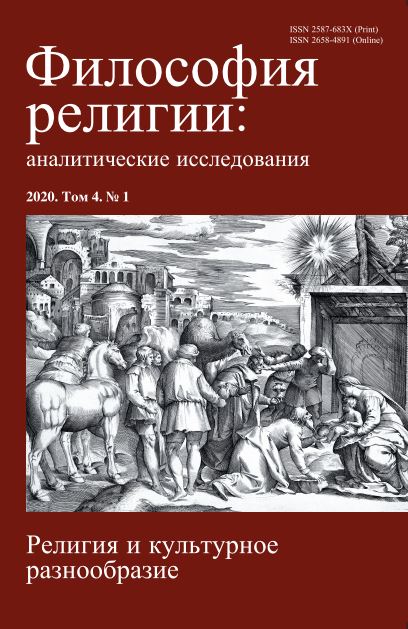Epistemological and Religious Fundamentalism in the Perspective of Interculturalism
DOI:
https://doi.org/10.21146/2587-683X-2020-4-1-5-26Keywords:
ideology, epistemological foundationalism, religious fundamentalism, the Scottish common sense realism, coherentism, cumulativity, the Mīmāmsā school, the Bible, the Vedas, the Qur’anAbstract
An attempt is undertaken to deliver the notion of fundamentalism from ideological and emotional increments in order to fit it unto the framework of academic discussion. To begin with, two “fundamntalisms” were differed, as a philosophical, i.e. epistemological doctrine and a religious attitude of mind wherein the histories of the related terms, their actual contents, their mutual correlations as well as counterparts of their contents outside the Western culture are scrutinized. An experience in juxtaposition of the Western epistemological heritage with that of the Mīmāmsā school of Indian philosophy helped justify viability of epistemological foundationalism as well as its advantages inasmuch as its intuitionism proves compatible with the principle of verufication. While pondering on Western religious fundamentalism, its “non-fundamentality” has been detected along with advantages of what the author of the paper calls cumulative model of “fundamentality”. Its affinity to Islamic “textualism”, which has undoubtful affinities with Jewish strict orthodoxy, justifies one to call both versions as sui generis willed infantilism. Nevertheless, even in the latter case there is no warrant to label the term under discussion with stereotyped ideological clichés.Downloads
Published
2020-06-30
Issue
Section
CONCEPTS AND CATEGORIES
How to Cite
Epistemological and Religious Fundamentalism in the Perspective of Interculturalism. (2020). Philosophy of Religion: Analytic Researches, 4(1), 5-26. https://doi.org/10.21146/2587-683X-2020-4-1-5-26

 This work is licensed under a
This work is licensed under a 
